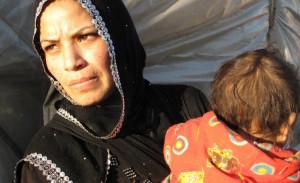Interregional learning for receiving refugees
 The human, social and economic consequences of the conflict raging in Syria for five years extend well beyond the country’s borders. The war has already caused over 220,000 deaths and over 7.6 million people have been displaced. “We are facing the largest wave of forced immigration since the Second World War. The situation is urgent and critical!” stresses Janette Uhlmann, Project Manager at the Center for Mediterranean Integration in Marseille. As the Syrian crisis worsens, humanitarian and development organisations are working together to overcome the historic rift that has existed between their approaches. For the first time, the World Bank and the United Nations Refugee Agency have conducted a joint study to share and analyse data on Syrian refugees living in Lebanon and Jordan, in order to better underst and what determines their well-being, while striving to support a more sustainable system that meets their needs. Their report was officially launched on 15 February 2016 in Paris, as part of a day of discussion and lectures that brought together representatives from countries hosting Syrian refugees, development partners, experts and researchers, and civil society representatives. “This type of event promotes interregional learning, in particular between the Middle East and Europe, for receiving refugees. The Mashriq and Turkey have already received over 4 million refugees. Experience sharing is useful for determining both emergency and longer-term solutions.”
The human, social and economic consequences of the conflict raging in Syria for five years extend well beyond the country’s borders. The war has already caused over 220,000 deaths and over 7.6 million people have been displaced. “We are facing the largest wave of forced immigration since the Second World War. The situation is urgent and critical!” stresses Janette Uhlmann, Project Manager at the Center for Mediterranean Integration in Marseille. As the Syrian crisis worsens, humanitarian and development organisations are working together to overcome the historic rift that has existed between their approaches. For the first time, the World Bank and the United Nations Refugee Agency have conducted a joint study to share and analyse data on Syrian refugees living in Lebanon and Jordan, in order to better underst and what determines their well-being, while striving to support a more sustainable system that meets their needs. Their report was officially launched on 15 February 2016 in Paris, as part of a day of discussion and lectures that brought together representatives from countries hosting Syrian refugees, development partners, experts and researchers, and civil society representatives. “This type of event promotes interregional learning, in particular between the Middle East and Europe, for receiving refugees. The Mashriq and Turkey have already received over 4 million refugees. Experience sharing is useful for determining both emergency and longer-term solutions.”



